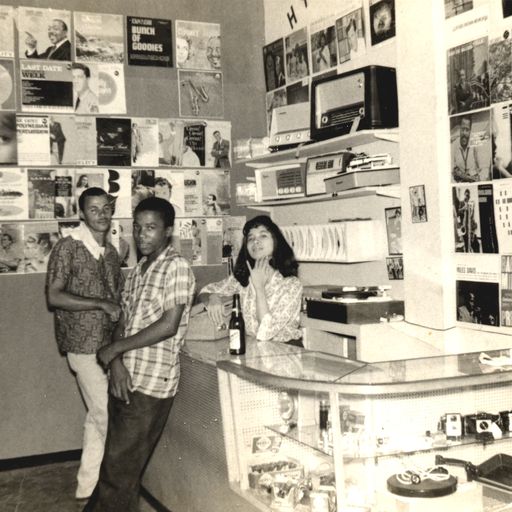Peter Tosh, Lee "Scratch" Perry, Dennis Brown, Alton Ellis, Lord Creator and Bob Marley are some of the reggae greats who graced Studio 17 in downtown Kingston in the 1960s and 1970s. This fine British documentary spotlights this crucial chapter of reggae and Jamaican history. At its unlikely centre is a Chinese-Jamaican family, headed by matriarch "Miss Pat" Chin, her late husband Vincent, and his son, Clive. Vincent was nicknamed Randy which was also the name of the record store attached to the studio, just like legendary Stax Records in Memphis.
The Chins' story teems with charming anecdotes, near-fatal twists and tragedy. The Chins were one of many Chinese families who comprised the merchant class of Jamaica. The Chins started reselling ska 45s in the early 1960s, and soon expanded into recording musicians themselves. Legendary engineer Clive Thompson helped shape the clean, balanced sound of Studio 17 which attracted Jamaica's reggae artists. Business was good at Randy's and Studio 17, and their early success mirrored the optimism of newly independent Jamaica of the 1960s. Clive established a reputation as a top producer of danceable ska which morphed into harder-edged reggae to reflect the growing cynicism of Jamaicans by the late-1960s.
In Studio 17, Miss Pat and especially Clive guide the viewer through Studio 17's rise. They're augmented by reflections from reggae legend Jimmy Cliff, UB40's Ali Campbell and Dave Stewart formerly of the Eurythmics. They recall Peter Tosh as a spiritual man who smoked the sacrament of ganja everywhere, including a Pan Am flight to New York; and of Bob Marley covering the bubblegum anthem, Sugar Sugar (quite well, actually). Clive recalls narrowly missing the assassination attempt on Marley during a violent national election. That political unrest and the threat of Communism forced the Chins and other Chinese-Jamaican merchants to flee the island in 1978. Clive and Miss Pat literally left everything behind, including the library of tapes recorded at Studio 17.
Though Clive later moved the tapes to his new home and record store in Queens, New York, it took a murder in the Chin family years later to convince Clive to digitize the aging reel-to-reels and release select collections to the public. Miraculously, the tapes survived. This includes an unfinished demo by Dennis Brown. A few years ago, Clive enlisted teen British singer, Hollie Stephenson, to add a new vocal which turned that demo into a sparkling duet that Dave Stewart co-produced. That is a wonderful sequence in the film. Another great story is of UB40 rescuing Lord Creator from poverty by covering his ballad, Kingston Town, in 1989.
The story of the Chins and Studio 17 is so entertaining that it compensates for the film's only flaw. Reshma B is a London journalist who interviews the subjects and sometimes pops up on camera. This is distracting and unnecessary. Making things more confusing is that someone else is narrating the film. Just who is telling this story? Luckily, the film keeps circling back to the Chins to restore its focus.
Studio 17 fills a hole in the history of reggae. It offers captivating viewing for lovers of reggae, Jamaica and cinematic storytelling.
Studio 17 will screen on August 10 in Montreal, August 14 in Ottawa and August 15 in Toronto. Check local listings for details.



No comments:
Post a Comment